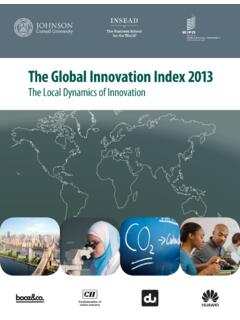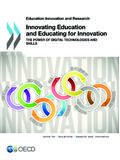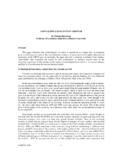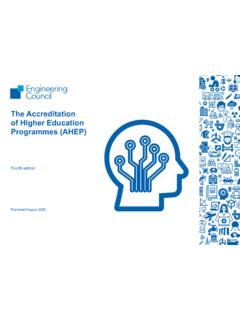Transcription of Role of Knowledge Management to Bring Innovation an ...
1 International Bulletin of Business Administration ISSN: 1451-243X Issue 11 (2011) EuroJournals, Inc. 2011 121 Role of Knowledge Management to Bring Innovation : An Integrated Approach Kashif Akram Lecturer, Department of Commerce The Islamia University of Bahawalpur (Pakistan) E-mail: Tel: +92 63 9240298 or +92 334 7266860 Suleman Hafeez Siddiqui Lecturer, Department of Management Sciences The Islamia University of Bahawalpur (Pakistan) E-mail: Tel: +92 63 9240298 or +92 322 5172513 Muhammad Atif Nawaz Lecturer, Department of Economics The Islamia University of Bahawalpur (Pakistan) E-mail.
2 Tel: +92 63 9240298 or +92 314 6864997 or +92 333 3030313 Tauqir Ahmad Ghauri Lecturer, Department of Management Science The Islamia University of Bahawalpur (Pakistan) Ph. +92 63 9240298 Cell +92 333 6183035 E-mail: Amjad Khawar Hayat Cheema Lecturer, Department of Economics The Islamia University of Bahawalpur (Pakistan) E-mail: Tel: +92 63 9240298 or +92 321 4076799 Abstract Purpose: The basic objective of the study is to reconcile the literature on Knowledge Management and Innovation in organizations.
3 The study seeks to examine and elaborate the linkage between Knowledge Management process and Innovation process to dig out the important relationships and flows of activities. Design/Methodology/Approach: The study is induced using qualitative methodology. The relationships postulated and the propositions made are based on the reconciliation of secondary data on the study variables. Theoretical relationships are enriched by the conclusions drawn from keen literature review.
4 Findings: By studying several empirical and conceptual studies, we find that different components of Knowledge Management as Knowledge activities, Knowledge 122 types, transformation of Knowledge and technology have a significant positive effect in bringing Innovation through transformation of Knowledge into Knowledge assets in organizations. Originality / Value: This article enlightens the ways through which Innovation can be brought in organizations. The innovative aspect of this study is that all Knowledge Management activities are incorporated simultaneously to examine their impact on Innovation .
5 Moreover this article will be important for decision makers, researchers and practitioners. Keywords: Knowledge Management , Knowledge assets, Innovation Paper type: Theoretical/Conceptual 1. Introduction Importance of Knowledge can be seen every where whether that is a society or a corporate world. Because Knowledge enlightens the human mind, shape up the behaviors, mold the attitude of the humans. So to make society a more civilized every one agrees that, to gain the Knowledge is the foremost activity or obligation, that is to performed or fulfill whilst its importance also recognized for corporate world as well.
6 Prusak and Davenport (1998) defined Knowledge is derived outcome of framed experiences, values, contextual information, and experts insight that provide a framework for evaluating and incorporating new experiences and information. Knowledge Management KM is an organizational process that aims to create centralize Knowledge source within the organization that acquire, assimilate, distribute, integrate, share, retrieve and reuse the internal and external, explicit and tacit to Bring Innovation in the organization in the form of the product, people and organizational process.
7 First Polyani (1962) identified the duality of the Knowledge . He divided Knowledge into two types. 1) Tacit Knowledge 2) Explicit Knowledge Tacit Knowledge Polyani (1962) defined tacit Knowledge as the abilities, expertise and conceptual thinking. Further, he argued that tacit Knowledge is not only attributed to the, what is know but it is also attributed to the knower as well. Because sometimes knower s Knowledge level is soaring but he could not explain in efficient way or sometimes knower does not have adequate sources to disseminate his Knowledge to the person who actually needs this.
8 Tacit Knowledge is very difficult to acquire because it is embedded in the form of capabilities, skills and ideas which individuals carry in their minds. Tacit Knowledge can only be seen through the application that is why tacit Knowledge is difficult to capture, exploit and diffuse among the organizational members. Explicit Knowledge Polyani (1962) said that explicit Knowledge can be disseminated and shared in the form of hard data, well defined procedures, and standardized principles.
9 Nonaka, takeuchi (1995) defined explicit Knowledge as Knowledge of Rationality . Explicit Knowledge is easy to capture, manage, share and disseminate to the people. 123 Innovation There are several definitions of Innovation . Herkma (2003) stated that foremost and basic purpose of Innovation is to produce new Knowledge which can develop and find out the doable solutions for society. Innovation is a practice and process which capture, acquire, manage and diffuse Knowledge with aim to create new Knowledge which will support to produce and deliver distinctive and idiosyncratic kind of products and services.
10 (Gloat and Terziovski, 2004). Plessis (2007) delineated Innovation as a formation of new Knowledge which helps the new business returns, which has purpose to make organization internal business process and structure more sophisticated that produce the market acceptable products and services. We can define Innovation as Activities and processes of creation and implementation of new Knowledge in order to produce distinctive products, services and processes to meet the customers needs and preferences in different ways as well as to make process, structure and technology more sophisticated that can Bring prosperity among individuals, groups and into the entire society.






